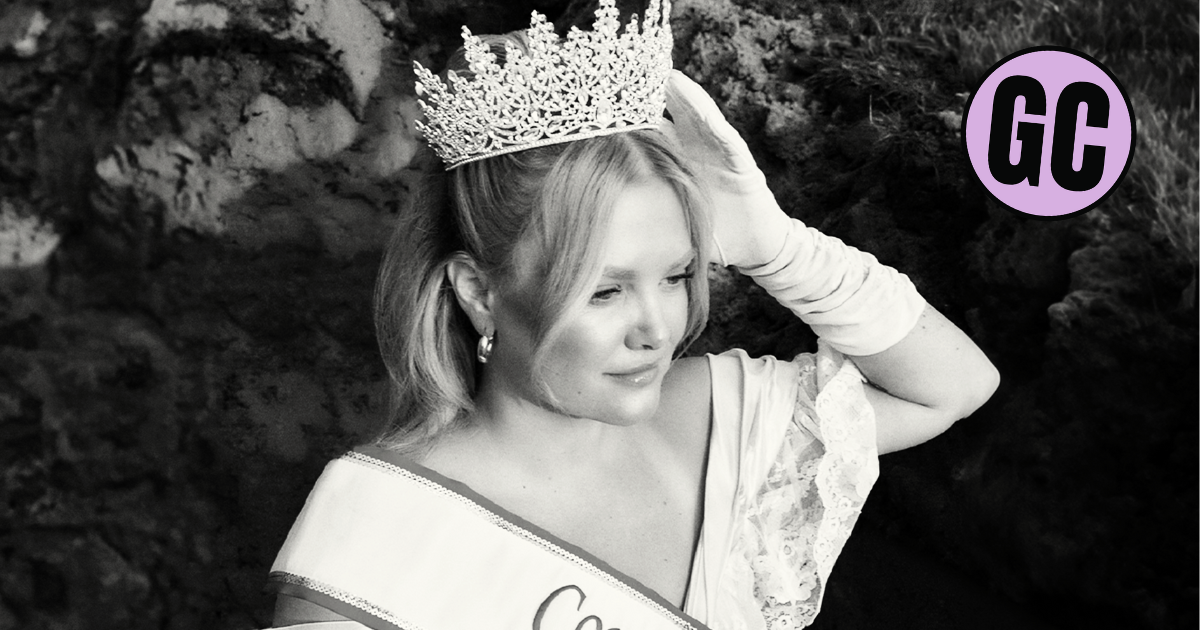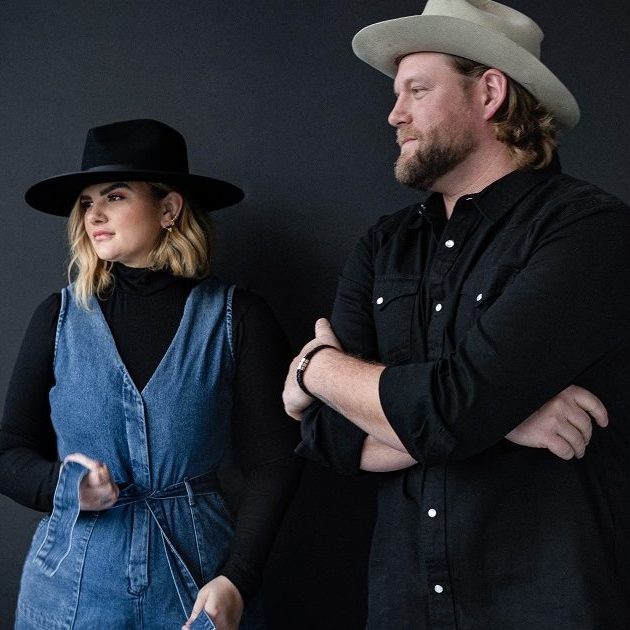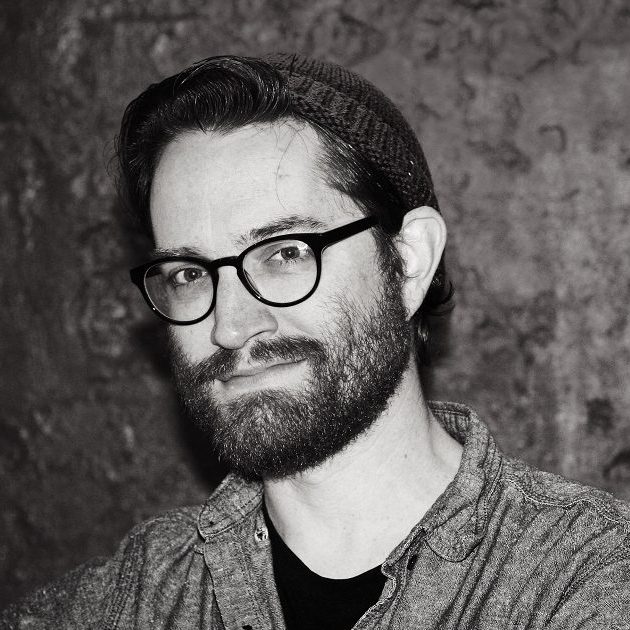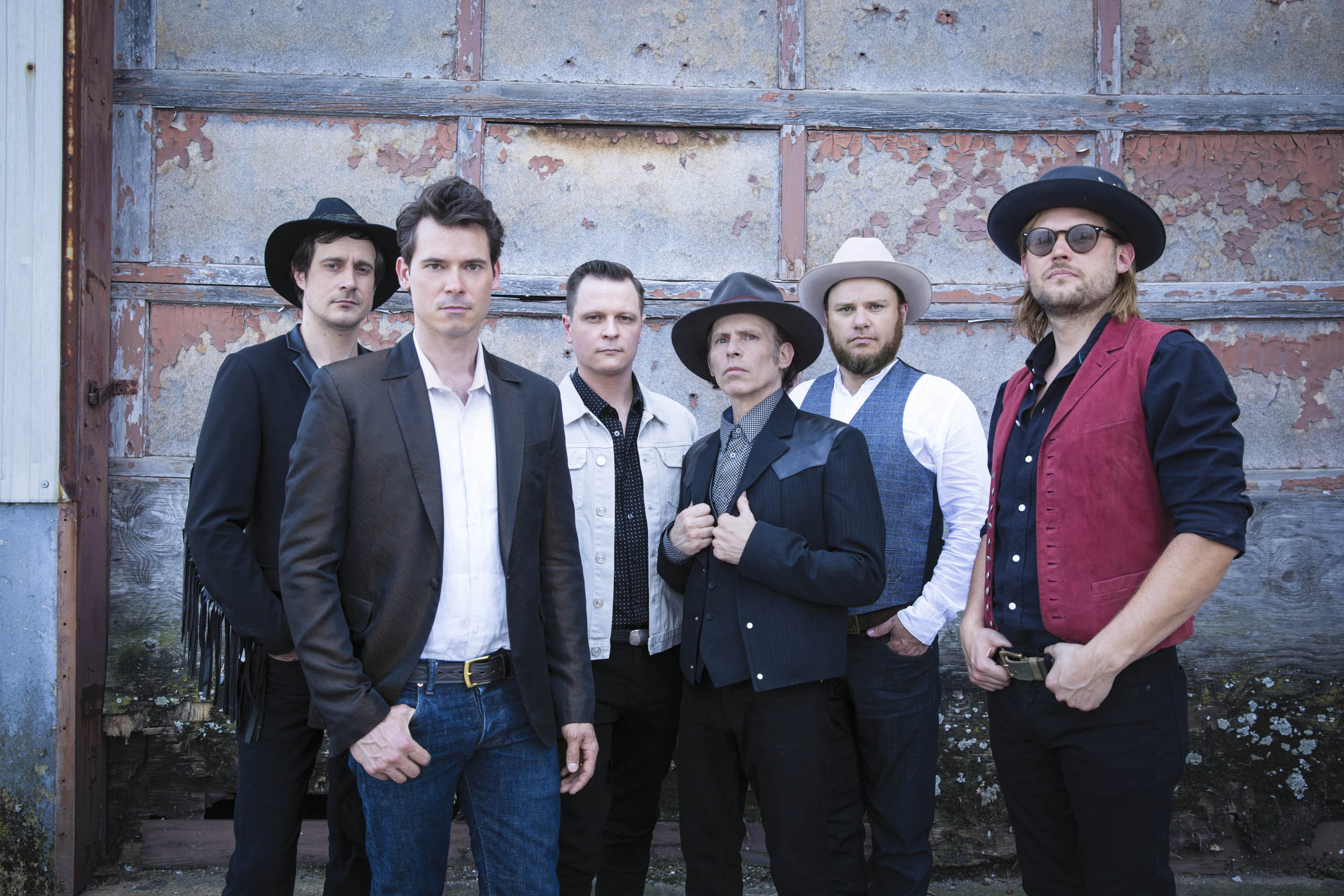Fueled by a strong Midwestern work ethic, Hailey Whitters played the long game to earn her well-deserved spot in country music. From the time she moved to Nashville from Iowa in 2007, Whitters immersed herself in the city’s songwriting community while chipping away at her dream of being a recording artist.
It took about a decade, but her own songs found their way to Alan Jackson, Little Big Town, and Martina McBride, and she earned a GRAMMY nomination for Song of the Year as a co-writer on Alicia Keys and Brandi Carlile’s “A Beautiful Noise.” But her true breakthrough arrived in 2022 and 2023, when her platinum single “Everything She Ain’t” charmed small-town fans and country radio programmers alike.
After “Everything She Ain’t” eased off the charts, Whitters forged ahead on the road and returned to the studio to create Corn Queen, her first new album in three years. In a call with Good Country, Whitters chatted about working with Molly Tuttle on “Prodigal Daughter,” the influence of the Chicks, and how a childhood diary set the foundation for her as a songwriter.
Corn Queen kicks off with a song called “High on the Hog.” which seems like it’s based on a true story. What was on your mind as you were writing that?
Good lord. I mean, it feels pretty literal to me. I was in the middle of just burnout, probably. I was thick in heavy, heavy touring, sometimes being in the airport three times a day. I was watching my [follow-up] single at country radio fail miserably. It was such a whirlwind, but I remember just taking a minute to be like, “What on earth is going on here?” and having a moment of clarity. I’ve been in Nashville for 17 years now, and I’ve been on the road for over a decade. I got my first bus last year. It was this funny juxtaposition where everyone was thinking that I’d made it. I’d had this big single, and my whole family thought I was so famous! But if you saw that I slept on an airport floor last night and got ready in a gas station bathroom, you would be shocked by what is behind this curtain. I wanted to show that with this song. Outsiders might think this business and this job are really romantic. And I think it’s a grand illusion!
There’s a silver lining in that song, I think. Do you consider yourself an optimistic person?
I always say I’m a negligent optimist. I’m optimistic to a fault! I’ve really had to put on some reality glasses the last few years because I will always choose “glass half full.” I’m always going to look for the brighter side of things. But yeah, I got some good kicks in the rear end the last few years, and that shook me up a little bit. So wait, what’s the silver lining, though? I’m curious, the “high on the hog” line?
Yeah, I took it as, “Hey, despite everything, I’m still out here doing this thing.”
And that’s true, too. In the bigger picture, when I’m not pulling graveyard shifts in driving the van and breaking down and having my audio engineer leave at the border in Canada and getting thrown to the wind before opening for Tyler Childers… I think it’s a silver lining. It’s also a little like sarcasm. Like, I know I’m not supposed to complain, but I’m high on the hog out here! But ultimately, there’s been some really great moments and some really cool things that I’ve dreamt about my whole life. So, at the end of the day, this gig ain’t that bad.

Molly Tuttle is on this record, too, on “Prodigal Daughter.” How did you cross paths with her?
I think one of the first times we ever met each other, I want to say we were both singing at a Tim McGraw tribute show. I may have made that up, but we were both on the bill, and it was Basement East. I remember meeting her backstage and hearing her, and she’s phenomenal! She’s absolutely incredible. And we got set up to write during the pandemic. It was me, her and Lori McKenna, and we wrote maybe two or three songs. And I really, really loved it.
I listened to her and I listened to Billy Strings a ton during the pandemic. I always thought it would be cool to do something with her someday. She’s just an insane talent. Then I wrote this song, “Prodigal Daughter,” and it felt like more of a bluegrass, rootsy kind of vibe. And I thought, “I would love for Molly to do some picking and sing on this one.” And yeah, she played clawhammer! We went over to my engineer’s studio and it was freaking insane. She just blows my mind.
At what point did you become a bluegrass fan?
I think I always liked bluegrass. Bluegrass fans might think this is crazy, but probably my gateway drug was when the Chicks made the Home album, which was more of a bluegrass record. Then that turned me on to Alison Krauss & Union Station, and the early stuff from Ricky Skaggs and Keith Whitley. I have so much respect for that music. They’re so talented and I’m in complete awe. I feel like they come out as babies with an instrument in their hand and just know it up and down. To be so dedicated and devoted to your instrument like that, it really blows my mind.
Home was a landmark record for me, too. Living in Nashville this long, I think about that song “Heartbreak Town,” and how that really shows the way the music industry is here.
So good! [Written by] Darrell Scott, another great musician. And that record was the first time I got turned on to Patty Griffin, too, because of “Top of the World” and “Truth #2.” I grew up in a cornfield in the Midwest. There was no musical influence around me. My family is super blue-collar. Everyone’s digging dirt, or farming, and women are raising babies. The only musical influence I had was what I was hearing on the radio. I was a big country radio kid, and I remember when the Chicks put out that record. That’s the first time I thought, “I need to scratch the surface and dig a little deeper into some of these influences.”
If there’s one song from Home that you think somebody has to hear, which one would you pick?
If you’re wanting to be a songwriter or an artist in country music, I would probably say “Travelin’ Soldier.” That song is so well-written. Anyone can hear that and feel something. Bruce Robison wrote that song. There’s a certain magic to a songwriter who can sit down and write a song by himself. If you want to go deep, “Top of the World.” Even when I was a senior in high school, I was so blown away by that song. It really makes you reflect and think about your life. I remember seeing a Patty Griffin show at the Ryman a few years back, and I just sobbed in the pew to that song! It was a spiritual experience for me.
How did you pick up guitar? How did you learn how to play?
It’s funny, I got a diary one Christmas in 1994. I would have been five years old, barely knew how to write at that point, and I kept a diary. So I always wrote, for my whole life. In elementary school, my guidance counselor asked me what I wanted to do when I grow up. I was like, “I want to sing country music.” And he asked me, “Well, who are some of your favorite artists?” And I said, “The Chicks.” And he was like, “You know they write their own music, right?” And I said, “No! How do you do that?” And he told me, “You’ve got to get a guitar, you’ve got to learn some chords, and you’ve got to write some songs.” So that was when I started doing all that.
How did you make friends when you got to Nashville?
Actually I’m just leaving a breakfast with three of the first people I ever met in Nashville. We met back in 2007, and still to this day, they’re some of my closest friends. When I moved here, I went to Belmont University, and I met them there. We were all Miranda Lambert fans, and she was playing a show, so we all were talking about going to the show. We just always loved country music together. Especially when we first moved to town, we were so completely enamored by Nashville and the songwriting scene. Back when Nashville had showcases, we would go to three showcases a night. It was like, get out of class, get in my friend Lauren’s car, and go hit shows all night long.
On this record, I especially enjoyed “Hearsay.” It’s a love song, it’s funny, it’s got attitude, and a great hook, of course. Are there any moments or memories that stand out for you as that song was taking shape?
That song is about the Black Squirrel in my hometown, which is this little townie bar that’s been around forever. I remember going to see bands there, and they literally had chicken wire up to protect the bands. It’s that bar where you walk in with somebody that you’re not supposed to be with, and the whole town is going to be talking about it, and everyone’s going to know within an hour.
The song “DanceMor” is inspired by a place in your hometown, too, right?
DanceMor is the dance hall across the street from the Black Squirrel. It’s been around since the 1930s. My dad grew up going into it, my aunts and uncles, generations grew up throwing their boots on to go out line dancing and listening to country music. I always thought it was so cool. It closed for a minute when I was in high school, when it was undergoing different ownership, but I’d always wanted to go back and play it. It’s literally an eight-minute drive from my parents’ house. Everyone packs it out. We drank them out of beer last time. And everyone actually went across the street and started buying buckets and came back across the street and kept drinking. It’s such a sweet spot. I’m a big fan of old shit and protecting it and keeping it alive. There’s energy in those kinds of places that you can’t get in a new, polished venue. It’s kind of our little love song to the old dance floor ballroom.

I loved to hear the Wilder Blue singing on there. What did those guys add to the feel of that track?
I think they made the track. It needed those stacked harmonies, and they bring so much texture to all the different vocals and whatnot. They seemed to be a great fit for that. I met them on the Luke Combs tour last year, and they were so fun, and felt like brothers on the road. I listened to the record they did with Brent Cobb and I thought it was phenomenal. Then we got to tour together and play stadiums last year, and me and them, we’re at the bottom of the bill! We always went on early, then we went out in the parking lot and set up cornhole and made pickle margaritas and drank tequila and smoked cigs and played cornhole all night. I just hit it off with those guys.
There’s a message of encouragement in that song, too. You must have met a lot of little girls who look up to you. What do you like about having young fans?
It’s really cute. I mean, I used to be that girl. I remember getting on my dad’s shoulders in a cowboy hat and cowboy boots, reaching out and touching Ronnie Dunn’s hand when he’s on stage. I blame those early country concerts, because those were the moments where it felt larger than life, and you’re like, “I want to do that one day.” That’s really special to see girls like that holding up posters, or with the cowboy boots on, or wanting to get up and sing “Everything She Ain’t” with me. I egg it on. I think it’s great! And they can blame me when they’re twenty years into a ten-year town one day!
Lead Image: Harper Smith




